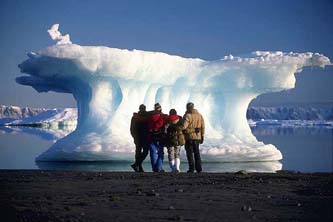Table of Contents
*
Featured Inuit Dog Owners: Jill and Daniel Pinkwater
*
Never Let Go: A Pedestrian Experience
*
Points of View: John Senter; Kathy Schmidt
*
When a Fight Isn't a Fight
*
Arctic Brucellosis Update
*
High Arctic Mushing: Part 1
*
Book Review: Uncle Boris in the Yukon
*
Page from a Behaviour Notebook: Do Dogs Have Emotions?
*
IMHO: Dog Sled Racing vs. Sled Dog Racing
Navigating This
Site
Index of articles by subject
Index
of back issues by volume number
Search The
Fan Hitch
Articles
to download and print
Ordering
Ken MacRury's Thesis
Our
comprehensive list of resources
Talk
to The Fan
Hitch
The Fan
Hitch home page
ISDI
home page
Editor: Sue Hamilton
Webmaster: Mark Hamilton
Contents of The Fan Hitch Website and its publications are protected by international copyright laws. No photo, drawing or text may be reproduced in any form without written consent. Webmasters please note: written consent is necessary before linking this site to yours! Please forward requests to Sue Hamilton, 55 Town Line Rd., Harwinton, Connecticut 06791, USA or mail@thefanhitch.org

Corel photo
In My Humble Opinion:
Dog Sled Racing vs. Sled Dog Racing
by Mark Hamilton
I think I need to start out by stating I have no ax to grind with racing of any kind. Dog sleds, skijoring, cars, monster trucks, aircraft, human powered events like Iron Man competitions, marathons, what have you, I'm OK with all of it.
I'm also going to state that the performance of the dogs from the sprint classes on through the Iditarod and Yukon Quest is so far beyond the performance of dogs from the early part of the twentieth century as to invite comparisons on the scale of the original Wright Flyer to the F-22 Raptor. These dogs are world class athletes, there is simply no other way to describe them.
That said, I've been having a problem with some definitions lately and, for instance, I no longer think of the Iditarod as a sled dog race. The racing community's current infatuation with Euro-hounds, based on their winning ways, is what is driving this issue for me. Clearly this is racing, and clearly the dogs are pulling dog sleds, but that doesn't make the dogs "sled dogs". Racing dogs, yes! Sled dogs, oh no!
No one could mistake those short-haired, flat coated, flop eared dogs with a Siberian Husky, Samoyed, Alaskan Malamute or Inuit Sled Dog. The typical "Alaskan Husky" also exhibits much of the Arctic phenotype as evidence of its origins as well. Many competitive mushers are now expressing concern over anticipated loss of Arctic characteristics in the Alaskan Husky as the hound influence spreads. Hounds have been tried before, we'll all have to wait to see if management issues associated with running them eventually override the benefits of their speed. Perhaps the International Sled Dog Racing Association (ISDRA) will even take action against them, as they did those Standard Poodles who once ran in the Iditarod.
My concern here is strictly over definitions, and no, not dog sled racing vs. sled dog racing. I'm concerned about the definitions that pertain to the ISD and ISDI. Words like "belong", "member", "pure-bred", "save", "preserve" to name a few are of critical importance to us all. What we mean and know is as important to our future success as how well we feed and care for our animals today.
There is a problem here. Writing out these definitions would be much like writing legislation. First, everyone needs to agree. Then it turns out that only the law-abiding people will be constrained by their parameters. It's like trying to create an ISDI statement of principles. It's one thing to just go out and do something, it's entirely something different to first write it up as a detailed plan and then go out and follow the plan.
At the heart of the problem is the fact that we are all so remote from each other, spread out as we are across several continents. Some of us got to have a little face to face communication back in July at the first ISDI Gathering, but not everyone could be there and it seems unlikely everyone will ever be able to all assemble in one place at one time.
Getting responses to the ISDI survey will help. Once all that information is in we can publish and disseminate it to the whole group. We'll all know a little more about each other.
Utilizing the ISDI discussion list will also serve to acquaint participants with each other.
The more we talk to each other, the better we'll all know
each other,
and the less likely it will be that our definitions won't
agree.